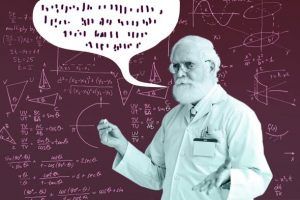Tim Requarth in Slate:
 If you consider yourself to have even a passing familiarity with science, you likely find yourself in a state of disbelief as the president of the United States calls climate scientists “hoaxsters” and pushes conspiracy theories about vaccines. The Trump administration seems practically allergic to evidence. And it’s not just Trump—plenty of people across the political spectrum hold bizarre and inaccurate ideas about science, from climate change and vaccines to guns and genetically modified organisms.
If you consider yourself to have even a passing familiarity with science, you likely find yourself in a state of disbelief as the president of the United States calls climate scientists “hoaxsters” and pushes conspiracy theories about vaccines. The Trump administration seems practically allergic to evidence. And it’s not just Trump—plenty of people across the political spectrum hold bizarre and inaccurate ideas about science, from climate change and vaccines to guns and genetically modified organisms.
If you are a scientist, this disregard for evidence probably drives you crazy. So what do you do about it?
It seems many scientists would take matters into their own hands by learning how to better communicate their subject to the masses. I’ve taught science communication at Columbia University and New York University, and I’ve run an international network of workshops for scientists and writers for nearly a decade. I’ve always had a handful of intrepid graduate students, but now, fueled by the Trump administration’s Etch A Sketch relationship to facts, record numbers of scientists are setting aside the pipette for the pen. Across the country, science communication and advocacy groups report upticks in interest. Many scientists hope that by doing a better job of explaining science, they can move the needle toward scientific consensus on politically charged issues. As recent studies from Michigan State University found, scientists’ top reason for engaging the public is to inform and defend science from misinformation.
It’s an admirable goal, but almost certainly destined to fail.
More here.
